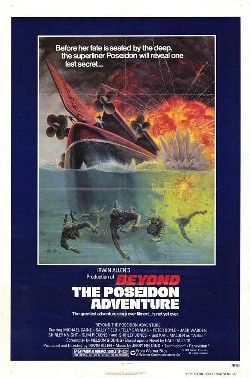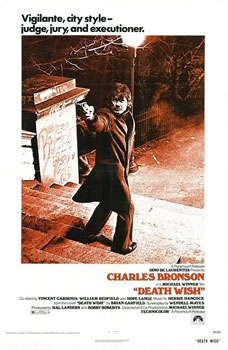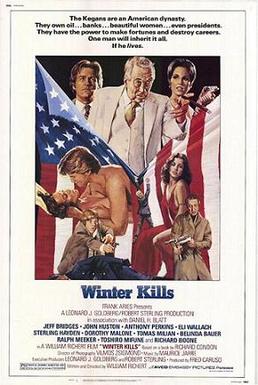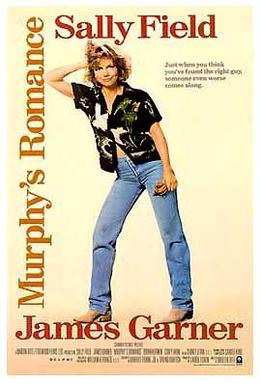Long before such things as "toxic fandom" and "stans" came to prominence, Misery touched on the possessive nature of fans. Well-acted, quietly intense, but for one expected moment Misery would be brilliant.
Paul Sheldon (James Caan) is the successful author of the Misery Chastain series of novels. The romance version of Sherlock Holmes has made him rich and famous, his editor Marcia Sindell (Lauren Bacall) reminds him. However, like Sir Arthur Conan Doyle, Paul has grown resentful towards Misery, feeling that it keeps him from better work. With that, his eighth and newest Misery novel Misery's Child will kill off his golden goose.
Paul has finished Misery's Child in the Colorado mountains where he always writes. Caught in a snowstorm when leaving, Paul has a major car crash. He awakens in the remote cabin of Annie Wilkes (Kathy Bates). Annie is not just a nurse but Sheldon's self-described "number one fan". The accident has disabled Paul to such a point that he cannot be safely moved. Moreover, the snowstorm has left the Wilkes farm isolated from the nearby community.
Annie seems nice if a bit mercurial and excessively attached to the character of Misery. When she reads Misery's Child with Paul's blessings, Paul is terrified by her reaction. Annie is violently enraged that Misery has been killed off. She will not stand for this murder. After ordering a weak Paul to destroy his newest unpublished work based on his early years, Annie now demands that Misery be revived. This begins a battle of wits and wills between Annie and Paul.
Paul's disappearance has alarmed Miss Sindell, who contacts the local sheriff. That sheriff, Buster (Richard Farnsworth), believes that Paul may be dead. As he begins investigating alongside his wife Virginia (Frances Sternhagen), he soon starts thinking that Paul is alive but still in danger. He also begins to delve into the Misery world, coming upon a quote from one of the novels that triggers a memory. That memory leads him to wonder if Annie Wilkes, in her isolated farm, has something to do with Paul's disappearance, as her past as a murderess comes to light. Who will live and who will die by Misery's hand?
I do not know that today, people appreciate just how popular Misery was when it was released. The expression "I'm your Number One fan" became something of a catchphrase, albeit one that signaled that the speaker was bonkers. I think that, with hindsight of thirty-five years, Misery was far ahead of its time. Misery captures the possessive manner of fans, in this case of a literary series. Today, we see many fans of works as varied as the vampire Twilight books to the long-established Star Wars franchise be at times enraged by something that the original creators do. How much of a stretch is it from an Annie Wilkes getting hung up on minutia of Sheldon's Misery universe to say Doctor Who fans who can point out inconsistencies and contradictions. Misery is a dark portrayal of deranged fandom taken to the ultimate extreme. In that, I am surprised that William Goldman's adaptation of Stephen King's novel has not been given more credit for being prescient about how unhinged some devotees can be when it comes to the object of their fandom.
Misery is exceptionally well-acted. Kathy Bates created a villainess for the ages. Bates balances an almost sweet and disarming manner to someone who is beyond dangerous. She can switch on a dime from gleeful at recounting her enthusiasm about Misery's Return (the novel Annie forced Paul to write) to psychotic about Paul making the most innocuous statements. In between the rages and the notorious foot-maiming scene, Bates also allows bits of genuine vulnerability, even sadness. Bates' performance is so strong that through it, with Goldman's script, we get a moment of levity at Annie's expense. As she criticizes Paul for trying to cheat the audience, Annie tells him that he has to change everything except naming the gravedigger after her. That, she tells him in a staccato manner, he can keep. She is oblivious to how naming the gravedigger after her is not a compliment.
Bates' scene where she recounts her rage at a movie serial getting a detail wrong has become legendary, at times mocked. It also, thanks to Goldman's adaption, reveals a quirk in Annie's nature. As she screams about the "cock-a-doodie car", we see someone who will not swear. A major point in Annie is her refusal to use even the mildest of vulgarities. That, however, sets up a rarely commented moment in Annie and Paul's final confrontation, when she calls him a "lying c**ksucker".
Kathy Bates may have been the one to walk off with an Oscar for Misery, but there was not a bad performance in the film. It is a surprise that James Caan did not receive a nomination as well. His performance as Paul Sheldon was nowhere near as flashy as that of Bates. However, he was still effective as the tormented, at times arrogant Paul. I personally thought that it would have been better for the character to play along with Annie versus being as combative as he was. That being said, Caan is an excellent dance partner to Bates' unhinged intensity.
The supporting performances of Richard Farnsworth and Frances Sternhagen as Buster and Virginia are the closest Misery has to "comic relief". Do not misunderstand my meaning; they were not comic characters or performances. Farnsworth, in his quiet manner, was dedicated and intelligent, following the investigation in a methodical manner to its shocking conclusion. However, he and Sternhagen brought a little bit of impish charm to this married couple that could playfully play off each other. Their scenes were nice, even funny, where we saw Buster and Virginia jokingly insult the other. They brought lightness and a sense of calm to the at times wild goings-on in the film.
None wilder than the aforementioned foot-maiming scene. Director Rob Reiner was actually restrained in this grisly scene. Just as many people remember the Psycho shower scene as being more graphic than it actually is, the foot-maiming is not as graphic as I had remembered it. Contrary to memories, we see on-screen only one ankle twisted. The rest of the scene merely suggests the other ankle met a similarly gruesome fate. It is through Reiner's direction of the scene and his actors, along with Bates and Caan's performances, that makes that scene more intense that what is actually on screen.
In every element I think Misery excels except for when we get Annie coming back for a second smackdown. I had hoped against hope that we would not see her make a jump-scare, but I suppose that is what audiences either wanted or expected. I knocked down a point for that.
Minus that, Misery still holds up extremely well as a suspense thriller.











_2.jpg)






















_trailer_2.jpg)


